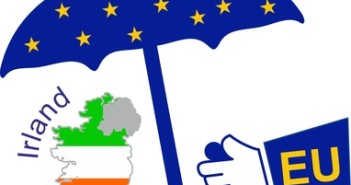The Irish people have spoken loud and clear – they don’t want the draconian bailout program. The EU might have to face Irish bank defaults or dig deeper into the pockets. The decisive elections aren’t good news for the Euro. Analysis.
The count in the Irish elections isn’t complete, but the result is clear – the voters in Ireland sent away the government that signed the EU / IMF bailout plan. Fianna Fáil which, led by incumbent prime minister Brian Cowen and by finance minister Brian Lenihan, suffered their worst electoral defeat in the history of the nation.
Cowen had already quit his post as the head of the party, but this didn’t help. His party, that ruled the country for most of its modern history, was kicked out – not only did they suffer a big loss, but the turnout in the elections, over 70%, has shown that the people were keen to go out and vote, go out and send the party home. Also their junior coalition partner, the Green Party, suffered a horrible loss – they won absolutely no seats in the new Irish parliament – the Dáil.

The new government will be formed by Enda Kenny, head of the Fine Gael center right party. Right now, it seems that his party won’t win an absolute majority in parliament and will form a coalition with the Labour Party, led by Eamon Gilmore.
Bank default inevitable?
The parties that will form the new government pledged to renegotiate the terms of the bailout. The bailout consisted of a harsh austerity plan – higher taxes, less public services and a lower minimum wage. And, part of the 85 billion euros don’t actually come from the EU or the IMF – they come from the Irish pension funds.
So, the Irish people have to ruin the present and risk their future. For what? The money will go to the irresponsible Irish banks, such as Bank of Ireland (nyse:ire), Anglo Irish Bank and Allied Irish Bank (nyse:aib) that are in deep trouble. These banks are indebted to British, French and German banks. So, the big EU countries are actually bailing out their own banks, partly with Irish money.
German Chancellor Angela Merkel, ECB President Jean-Claude Trichet and other senior European figures have said that the agreement signed with Ireland will not be modified. They were very stubborn on this. The only thing they were willing to do was to lower the high, punitive interest rate that Ireland pays, in return for lowering Ireland’s low corporate tax. The 12.5% tax is very attractive to foreign investors, and the other countries are envious…
So, they refuse to change the program, but what happens if the program isn’t feasible? What if fully applying the program means default – seeing no money in return? Then they might reconsider.
The current situation in Ireland is bad. The new government in Ireland will find itself in confrontation with the rest of Europe, whether they want it or not. This may send the Euro back down, after all the gains.
For technical analysis on the Euro, see the EUR USD forecast.
Other peripheral countries
Greece: Talks about restructuring of Greek debt are floating and have been denied by Greek officials – a sign that it is possible. The decisive result in Ireland could bring forward the suggested 25% haircut by offering bondholders the “Brady plan“. Last week saw serious protests in Greece – not as bad as in the Middle East, but quite worrying.
Portugal: Bond yields on Portuguese notes are becoming unsustainable. They breached the 7% mark – higher than Irish bond yields before the bailout plan was introduced. Despite buying of bond yields by the ECB (After they stopped), the general sell off continued and yields closed the week at 7.54%. The critical test will come at April,when Portugal has a lot to pay back.
Spain: The situation there is better, with yields under control, and under 5.50%. The issues can erupt when other countries, such as Ireland, find themselves deep in trouble, or if the housing market will be a heavier burden on banks.



